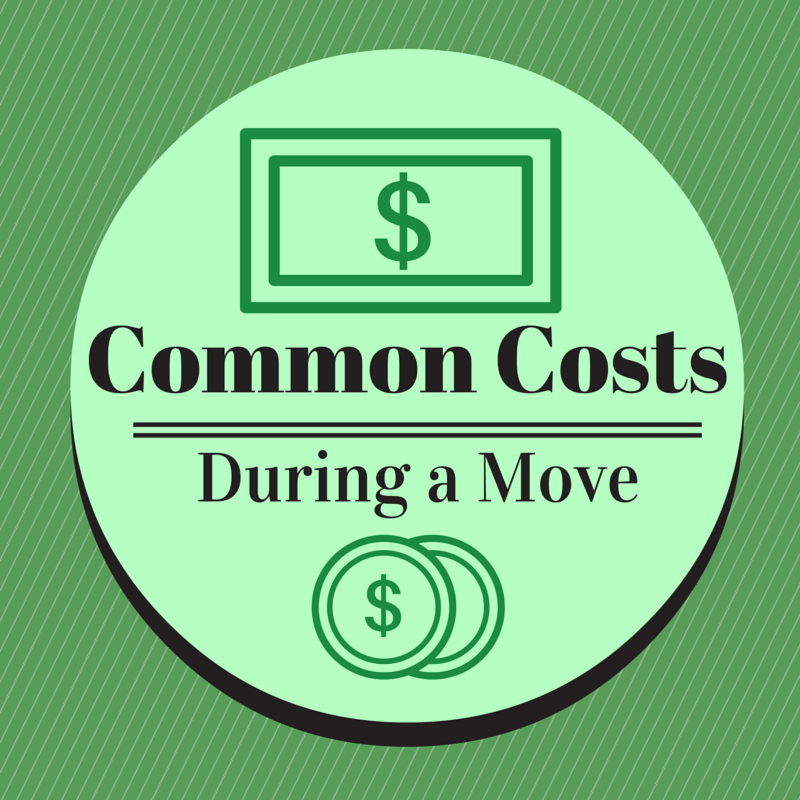 When you’re getting ready to move, you may think you just pack up all your stuff and move it. Essentially, it is that simple but there are some common moving costs that people forget about. There will be costs before, during, and after your move. You may not think it will be a lot of money but if you don’t keep track, it can go over your budget. Here are some common costs during a move so you can prepare accordingly.
Transportation expenses
If you’re moving a long distance, where it may take a few days to get there, you should be prepared for transportation expenses. One factor is the gas. Depending how fuel efficient your vehicle is, you may have to stop for gas often and that can begin to add up. Also, if it takes you more than a day to get to your new place, you’re going to have to stay in a hotel.
Moving boxes and packing supplies
You'll need plenty of cardboard boxes to pack your items for your move. You can usually go to a grocery store or ask around to find free boxes, but if you can’t find enough, you may have buy some. You'll also have to buy packing supplies such as:
- Tape to seal the boxes up.
- Bubble wrap to protect delicate items.
- Markers to label the boxes.
You may have these items sitting around already but it’s good to keep in mind that you may need to buy them.
Deposits
Whether you’re buying a house or renting an apartment, you’ll need to put down a deposit. For a house, it’s usually around five percent of the total cost of the home. For an apartment, the deposit is a month and a half of rent. It’s easily a few thousand, so don’t forget to factor that into your moving budget.
Cleaning costs
You’ll want to move your items into a nice, clean house or apartment. It’s recommended to give your new residence a nice wipe down before moving any items in. But cleaning doesn’t come free. It’s a good idea to set aside time and money for a cleaning budget. You’re going to need:
- Mop
- Vacuum
- All-purpose cleaner
- Cloths to clean with
- Bleach
Groceries
All your items are moved in but the next cost is groceries. Your first grocery trip in a new place is usually the most expensive since you have to buy all the basics such as oil, flour, and spices. You don’t need to fill all your cabinets and refrigerator completely but a few items to last you for a few weeks is sufficient. There’s also no harm in ordering take-out for a few days until you get settled but again, that’s another cost to consider.
Insurance
Insurance is a necessity when moving. If you’re moving into a home, you will need homeowner’s insurance. If you’re moving into an apartment, you’ll need renter’s insurance. Insurance will help you in case anything bad happens to your home, such as a flood or a fire. If you’re hiring a moving company, you’ll will also need a moving company insurance to ensure your items are protected if they get damaged. If you want more coverage, your insurance cost will be higher. It’s best to figure out what exactly you want coverage and purchase accordingly.
Moving company
If you have a lot of items or big, heavy items, it’s a good idea to hire a moving company. Moving companies usually charge by the hour, so if you have a lot of stuff or moving far away, it’s good to keep in mind that it may cost a little more than average. If you pack your items yourself, that will save you money. When you ask the moving company gives you an estimate, make sure to ask if it’s a binding or non-binding estimate. A binding estimate is an estimate that is a fixed number and won’t change. A non-binding estimate, which is the most common, is an estimate that gives you a ball-park approximation of what your move may cost. Figuring out what type of estimate your moving company is offering will give you an idea of what you should budget in your finances. |